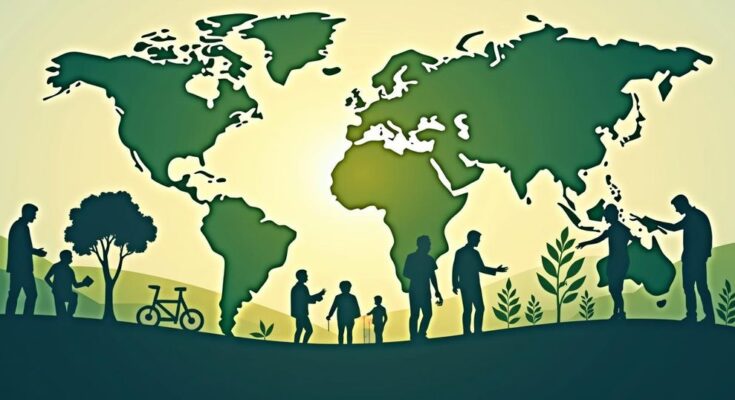The Global Stocktake, completed a year ago, evaluated progress on climate commitments outlined in the Paris Agreement and emphasized the critical need for climate finance ahead of COP29. Experts highlight substantial gaps in funding and successful adaptation efforts, expressing concerns about the outcomes of the upcoming summit in Azerbaijan. The report revealed the urgent necessity for more than the currently available financial resources, particularly for low-income countries facing severe impacts from climate change. A key optimism emerged from commitments to establish early warning systems by 2027 to protect communities from extreme weather events.
One year ago, leaders in climate policy celebrated the completion of the inaugural Global Stocktake, a crucial assessment aimed at evaluating global commitments to combat climate change under the Paris Agreement. This assessment focused on reviewing progress concerning emissions, financing, and climate adaptation measures, with the intent of holding nations accountable for enhancing their climate action. The first report of the Global Stocktake, released in September 2023, revealed that the steps initiated by the Paris Agreement had indeed improved projections for global warming. Nonetheless, it became evident that substantial further action is essential. As the COP29 climate summit approaches in Baku, Azerbaijan, uncertainty lingers regarding which recommendations from the Global Stocktake have been adopted and to what degree. Experts overseeing the process stress that climate finance is paramount for translating recommendations into actionable results at COP29, which will center on funding necessary to achieve climate objectives, commencing from a base of $100 billion annually and addressing the financial requirements of low-income nations. However, as negotiations unfold, a stark disparity between the funds required and those currently available persists. Niklas Höhne, a climate policy expert, expressed concerns about the challenging negotiations, remarking, “I think the negotiations are really very difficult,” suggesting that geopolitical tensions may further hinder progress. To move discussions forward, he proposed that wealthy nations present a definitive financing proposal, yet warned, “right now, they are simply not moving.” Countries with limited budgets face significant hurdles in their fight against climate change, particularly as expectations grow for COP29 outcomes. Paulo Artaxo, a professor of environmental physics, harbors doubts regarding COP29’s potential results, especially in the context of Azerbaijan’s affiliations with the fossil fuel sector. He forecasts some financial assistance for developing countries but emphasizes that it will likely fall short of the necessary amounts needed for comprehensive adaptation and mitigation. Many low- and middle-income countries, severely impacted by climate change, lack the resources for urgent adaptation measures. For instance, Brazil has witnessed a four-fold increase in heavy rainfall events over the past century, necessitating a complete overhaul of urban infrastructure like drainage systems. Without funding, such pivotal adaptations remain unaddressed. Saskia Werners, a senior scientist affiliated with the United Nations University, observed that only 51 countries had established national adaptation plans during the unveiling of the Global Stocktake, indicating a fragmented and irregular adaptation landscape across regions. She stressed the imperative of addressing climate adaptation in tandem with mitigation efforts, yet acknowledged the complexities in setting global adaptation goals, given the local nature of climate impacts. Despite the challenges, one aspect of optimism identified in the Global Stocktake was the commitment from countries to establish early warning systems by 2027 to safeguard populations from extreme weather events, marking a tangible outcome from the assessment.
The Global Stocktake serves as a significant instrument for evaluating the collective progress of nations in addressing climate change since the adoption of the Paris Agreement. This periodic assessment, undertaken every five years, is pivotal for updating commitments, holding countries accountable, and refining strategies to meet global climate goals. The inaugural report underscores both advancements since the Paris Agreement and the urgent need for additional actions to meet climate targets, particularly in relation to financial mechanisms aimed at empowering vulnerable nations to adapt and mitigate climate impacts effectively.
The Global Stocktake has underscored the pressing need for enhanced climate finance to support countries in fulfilling their commitments to combat climate change, especially as discussions unfold ahead of COP29. With significant gaps in funding and ongoing challenges in adaptation efforts, experts express skepticism about the outcomes of the upcoming summit. Nevertheless, there exists a glimmer of hope in the commitment to develop early warning systems by 2027, which could safeguard communities from increasingly severe climate-related events. As nations approach the summit, it remains essential for affluent countries to step forward with concrete financing proposals to facilitate global climate action.
Original Source: www.eurasiareview.com




